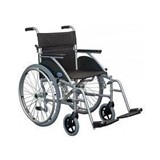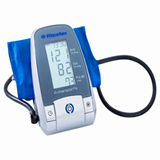"Now is definitely not the time to be considering a GST on healthy foods," according to Professor Heather Yeatman, President of the PHAA.
"This week has already seen massive cuts to preventive health programs and policies that assist low income earners and the vulnerable in our community. The budget announcements threaten to further erode the low incomes of many families. Making healthy food more expensive would make it unaffordable to many, adding an unwanted burden and health risk. When the Premiers and Chief Ministers meet on Sunday to consider their response to the federal budget, the PHAA urges them not to make matters worse.
"Diet-sensitive chronic disease due to unhealthy eating is now the greatest factor affecting overall burden of disease in Australia, greater than tobacco or overweight and obesity. We need incentives to eat healthy food – not disincentives.
Discretionary foods
"When the Assistant Minister for Health released the first National Nutrition Survey results last Friday, she confirmed that Australian adults get around 40 per cent of their daily energy intake from discretionary foods – those unnecessary for a healthy diet. These 'junk foods' – soft drinks, cakes, snacks, crisps, lollies and alcohol are bad for health. They are also cheaper. When budgets are tight, people fill up on cheap food, not healthy food.
"In Australia since 2000, the cost of basic healthy foods has been increasing at a much faster rate than unhealthy foods and CPI. Over the last three years the cost of fruit and vegetables rose by 8-13 per cent compared to only a 3 per cent increase in price for snacks and confectionery.
"Some states are even worse off: vegetables increased in price by 24 per cent in Canberra, 16 per cent in Brisbane and Sydney and 11 per cent in Perth. The cost of fruit went up by 19 per cent in Perth, 16 per cent in Canberra and 12 per cent in Brisbane. And this is without a GST on top. In contrast, the price of junk food only increased by 1-6 per cent in these cities over the same time period.
Silly or sensible?
"WA Premier Colin Barnett yesterday claimed that 'it's just silly' not to apply the GST to healthy foods. This is a very simplistic economic view with potentially catastrophic consequences for the most vulnerable in our society and for our health system. Even now, some people simply cannot afford to eat a healthy diet. Already welfare recipients in WA would need to allocate half of their disposable income to buy exclusively healthy food, while the average income earner would need to spend about 16 per cent of their income.
"We cannot ignore the economics of increasing health care costs from the chronic diseases directly linked to poor diets. State Premiers know their hospital costs are increasing. Farming families also rely on Australians buying fresh foods – not the cheaper processed and unhealthier options.
"When funding has already been cut to many of our preventive health programs, now is not the time to add further to the burden of disease. All Australians are affected. The GST exemption for healthy foods in Australia must be retained," said Professor Yeatman.
















